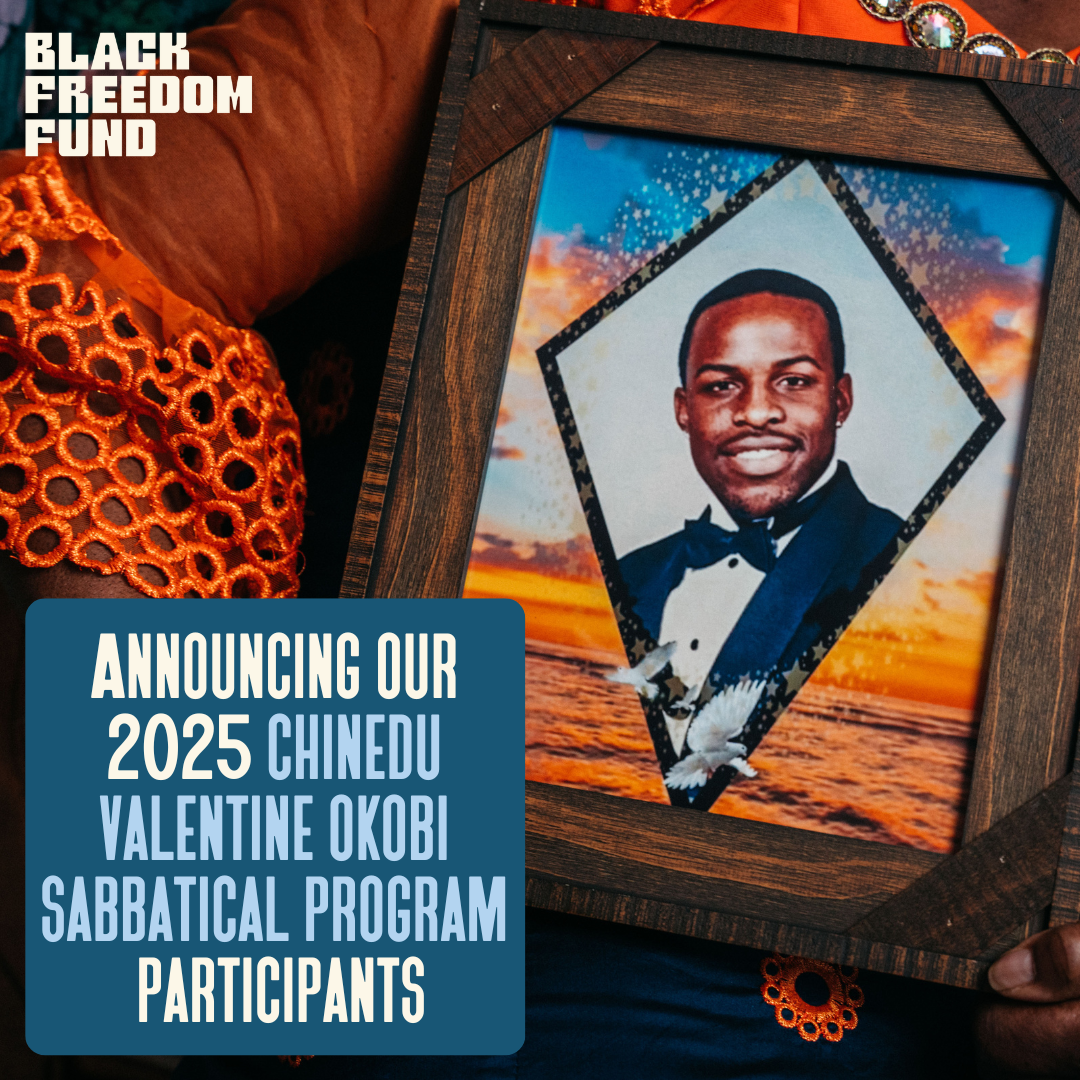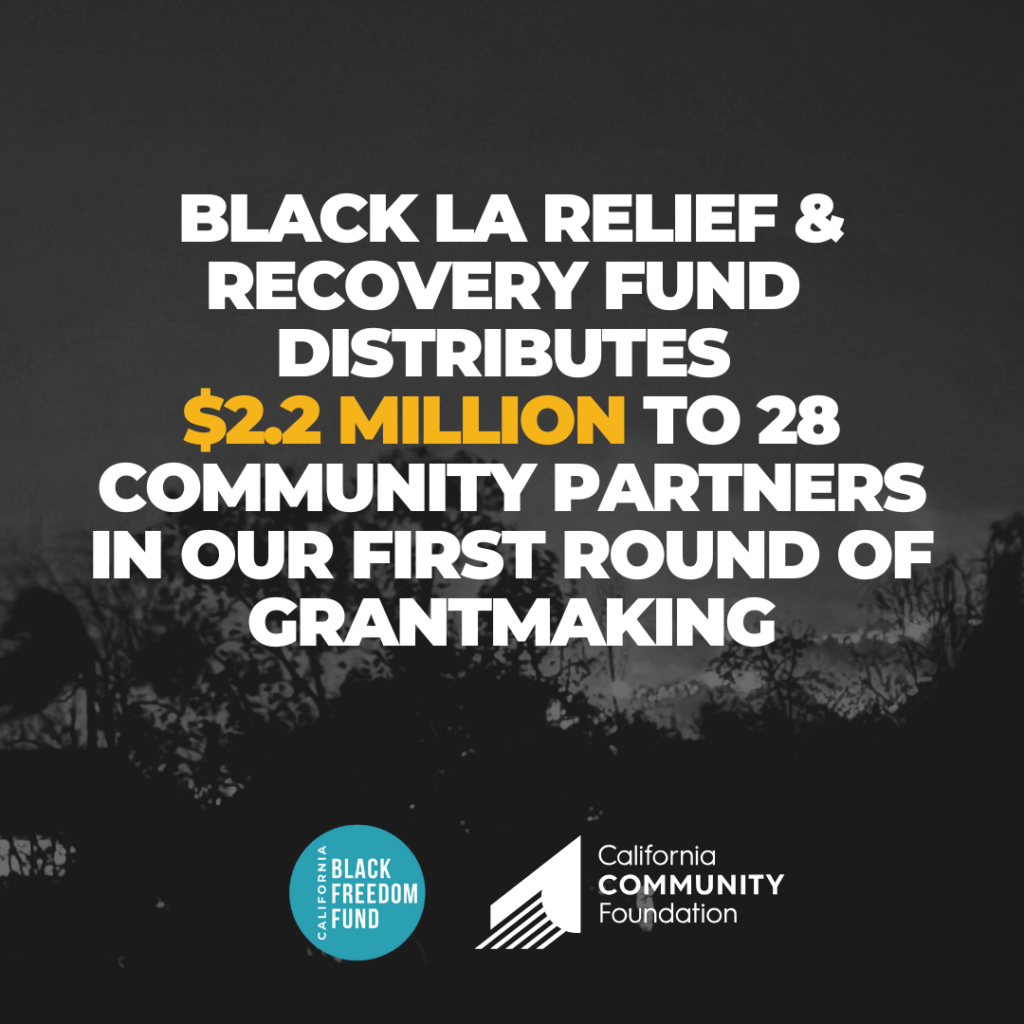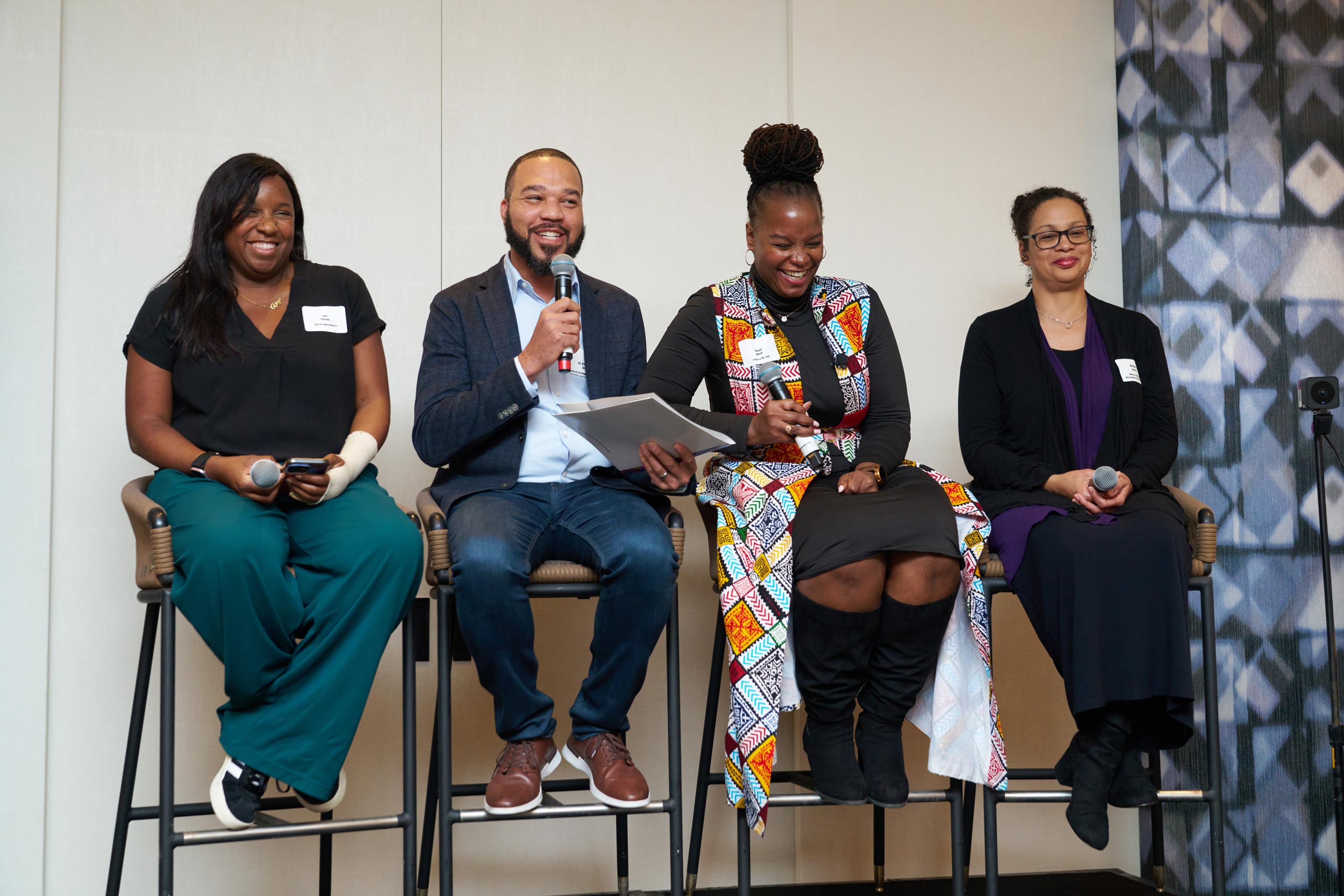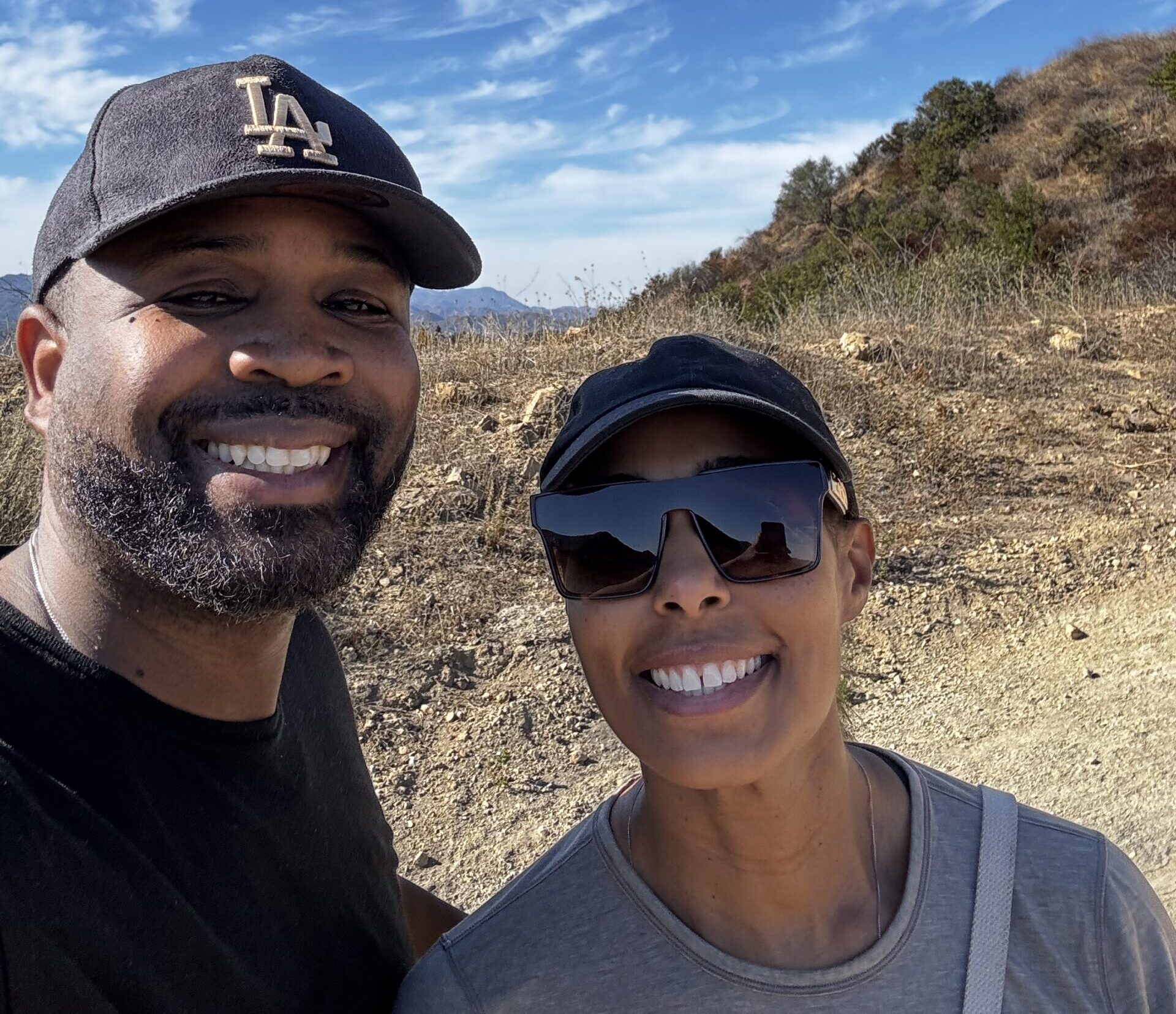
In 2024, Black Freedom Fund (BFF) proudly launched the Chinedu Valentine Okobi Sabbatical Program to support healing, rest, and joy for leaders of racial justice organizations.
The program is named after Chinedu Valentine Okobi – a devoted father, son, brother, poet, and Morehouse graduate – who was tased and beaten to death by San Mateo County sheriffs in 2018. To honor his life and legacy, Chinedu’s family partnered with BFF and the Black Girl Freedom Fund at G4GC, investing resources to create sabbatical opportunities for those fighting for liberation and safety in our communities so they can pause to attend to their well-being.
Launched at a time of deep burnout in the nonprofit sector, especially among leaders of Black-serving organizations, BFF awarded the first sabbaticals to three extraordinary changemakers:
- Tamisha Walker of Safe Return Project
- Kaci Patterson of Black Equity Collective
- Laneesha Senegal of Helping Others Pursue Excellence (H.O.P.E.)
Each awardees’ organization received a $25,000 grant to support their leader’s time away from day-to-day work responsibilities. What emerged were powerful stories of rest, healing, and transformation.
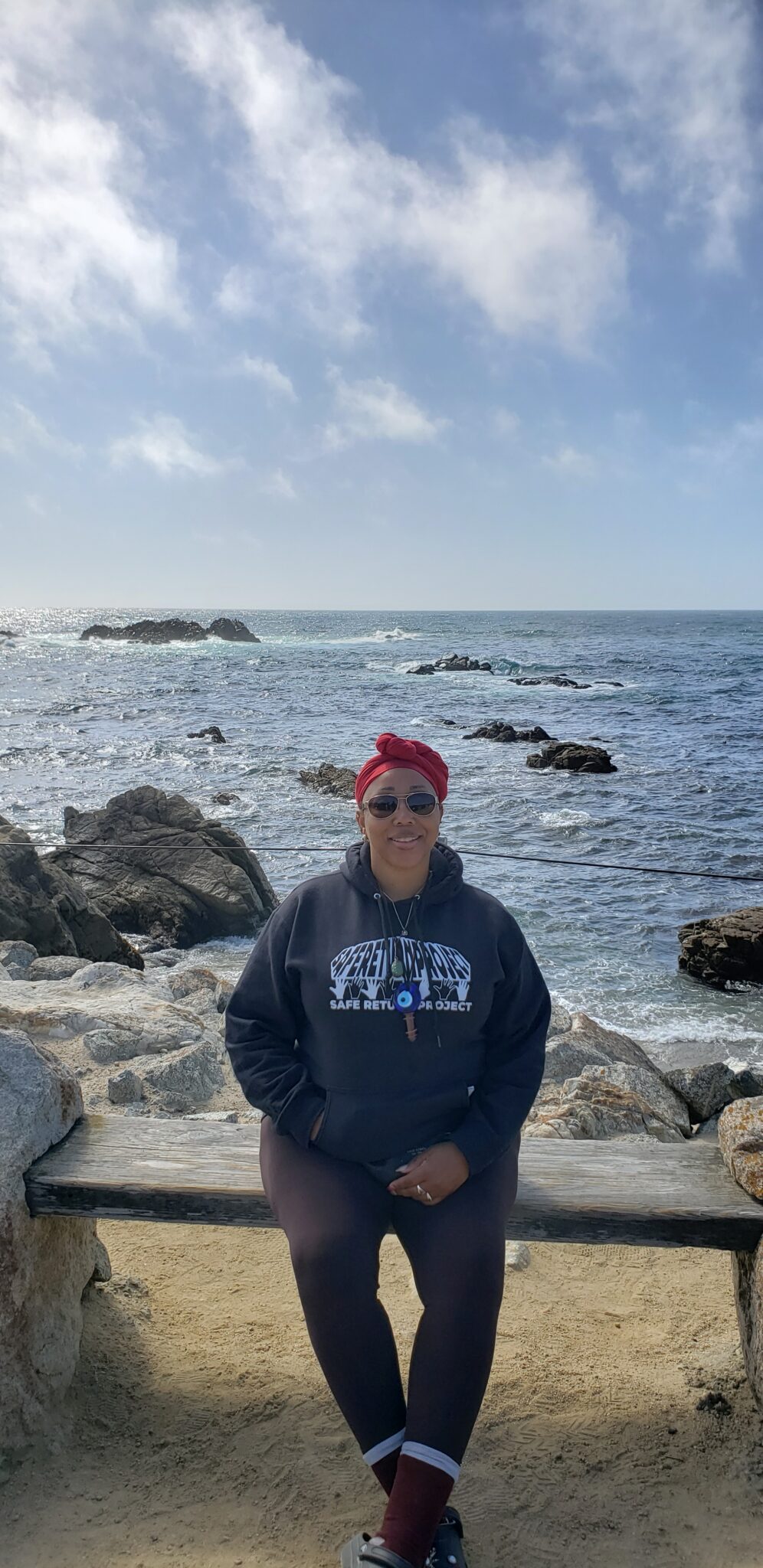
“I was overdue for a break.” – Tamisha Walker
For Tamisha Walker, co-founder and executive director of the Safe Return Project, the sabbatical could not have come at a more urgent time. After nearly 16 years leading the organization, she had never stepped away from the grind of building power for people returning home from incarceration. On top of that, she carried the responsibilities of being a community activist and serving as a city councilmember in Antioch. When her health began to falter and mobility issues arose, Tamisha realized her relentless pace was taking a toll.
“I wanted to spend some time just reflecting on my role—not just in the context of the organization, but in the movement—and figure out any personal pivots I needed to make,” she shared.
Her sabbatical offered a long-overdue pause. Tamisha began to prioritize her health, incorporating consistent gym routines and self-care practices. She finally had the chance to catch up on books she had set aside and enjoy quality time with her teenage son, including a much-needed seven-day cruise. The break helped her reset personally and rethink what sustainable leadership could look like.
When she returned to work, Tamisha resisted the urge to pick up where she left off. Instead, she intentionally slowed her re-entry, giving her team more autonomy and space to lead.
“I realized my team leaned on me too much. Even after I came back, I didn’t dive into everything at once. I gave them more authority so I could focus on fundraising, coaching, and long-term sustainability.” For Tamisha, the sabbatical was not just restorative; it reshaped how she envisioned her role as a leader.
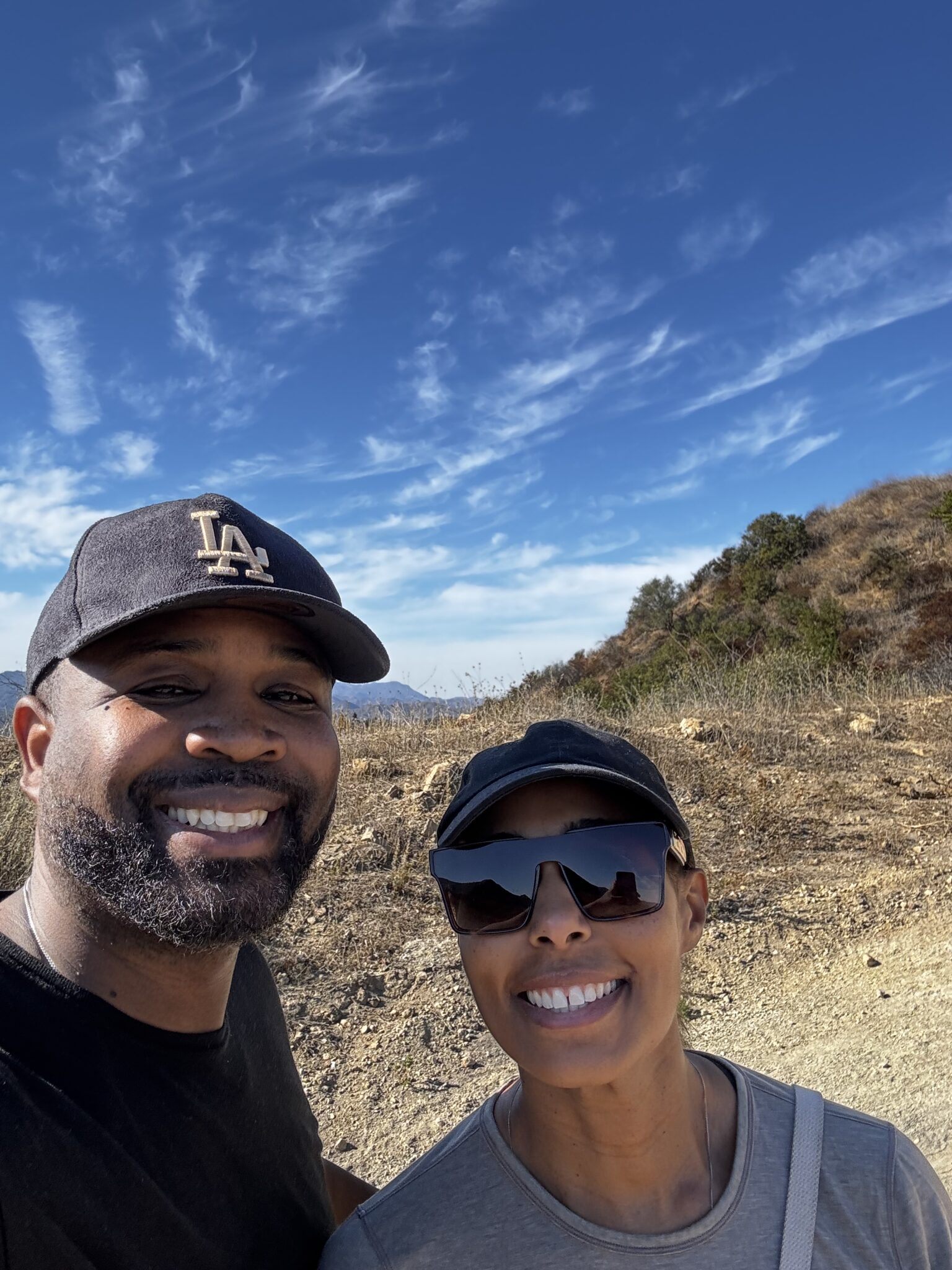
“I’m so grateful for the disruption.” – Kaci Patterson
Kaci Patterson, founder and chief architect of the Black Equity Collective, also entered her sabbatical at a breaking point. In addition to leading the Collective, she held executive roles in two other organizations, carrying the weight of responsibility for multiple teams and communities. On top of professional demands, Kaci had endured personal losses, often without the time to process or grieve. Rest always came last.
“But for being awarded a sabbatical, I would have never taken one. And so I’m so grateful to have had the disruption.”
Her sabbatical gave her space to breathe and to grieve. At first, the unstructured time felt foreign. But slowly, she created new rhythms: dedicating one day a week to personal errands and administrative tasks, one to rest, and one to exploration. That balance grounded her in a way that made rest not just restorative, but a new habit.
Kaci returned to work with a renewed commitment to embedding rest in organizational culture. The “personal admin day” she developed during her sabbatical is now something she encourages her colleagues to practice, building sustainability into the DNA of the Black Equity Collective. Her time away was bookended by the 2024 general election and the devastating 2025 Los Angeles wildfires, but it allowed her time to process her emotions without the pressure of being “the leader” in the room. “I needed that time to process my own angst about everything happening, without the constant expectation to respond,” she reflected.
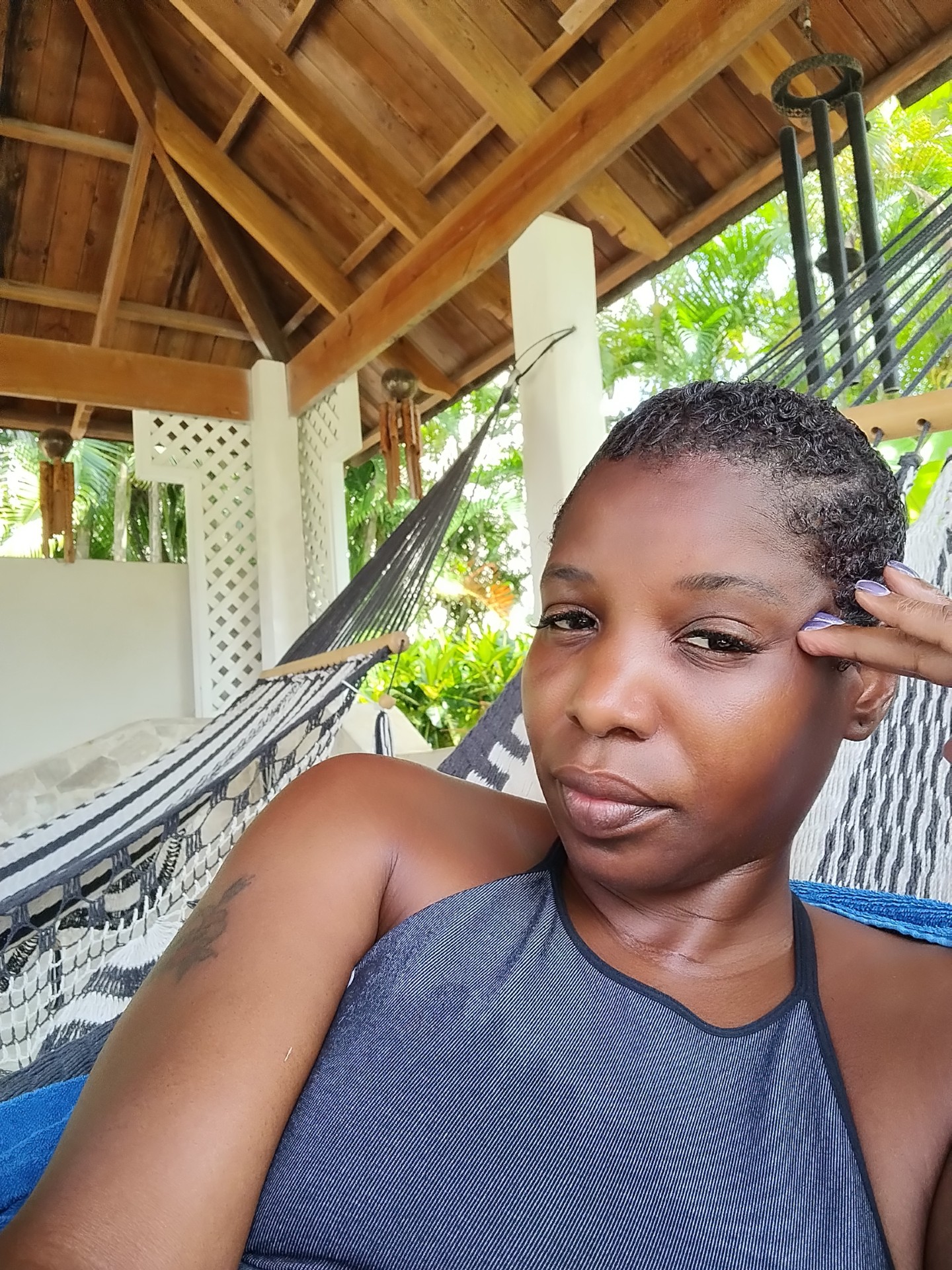
“I learned to prioritize self.” – Laneesha Senegal
For Laneesha Senegal, founder and CEO of Helping Others Pursue Excellence (H.O.P.E.), the sabbatical was a turning point after years of relentless work. Since founding H.O.P.E. in 2012, she had poured herself into building it into a regional hub for vocational training and entrepreneurship. She was constantly on call – saying yes to every opportunity, joining multiple boards, and showing up wherever needed. It wasn’t until her sabbatical that Laneesha fully grasped how much she had sidelined herself.
“I didn’t realize how much I put myself on the back burner. I was always saying yes, always helping others. I didn’t realize how much I had taken that on until BFF gave me the opportunity to step back.”
Her sabbatical allowed her to recharge through travel, massages, and simple acts of self-care she had long ignored. As a cancer survivor, this focus on her health and well-being felt particularly urgent. She also used the time to deepen her relationship and reflect on how to lead without sacrificing herself. “This created space for me to reset and learn to prioritize self. That is probably the most important impact of the whole experience.”
Laneesha’s sabbatical also had ripple effects across her organization. Initially hesitant to appoint an interim leader, she eventually brought in a Chief Operating Officer to reassure her staff and stabilize operations during her absence. The arrangement worked so well that the COO stayed on permanently, strengthening H.O.P.E.’s leadership and infrastructure.
Laneesha herself emerged with a new understanding of delegation. “Not only did we create space for new leadership to emerge, but I also learned to share authority in ways I never had before.”
Black Freedom Fund is proud to continue this transformative initiative. In 2025, thanks to the generosity of the Okobi family, BFF awarded $50,000 sabbatical grants to a new cohort of leaders—affirming our commitment to investing in the rest, renewal, and sustainability of Black movement leadership.
Share
